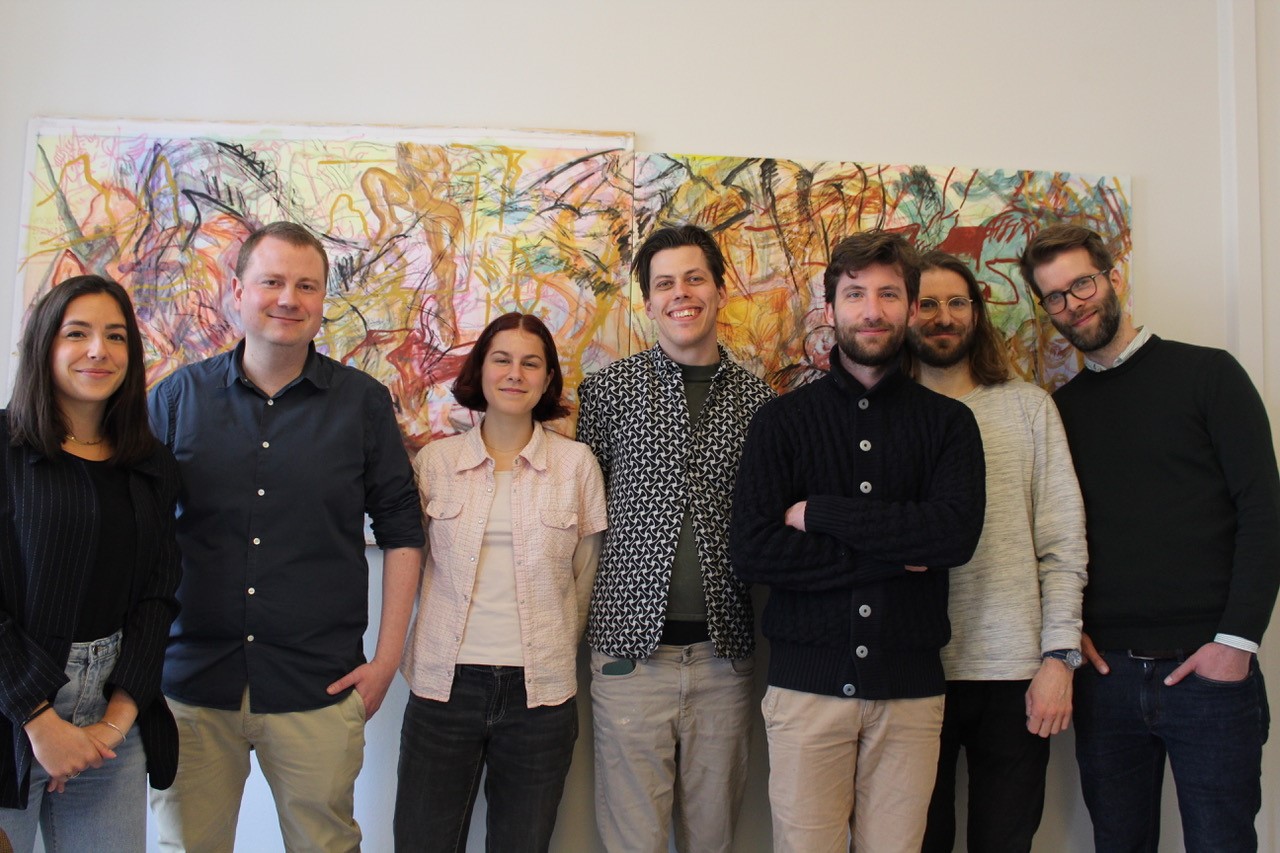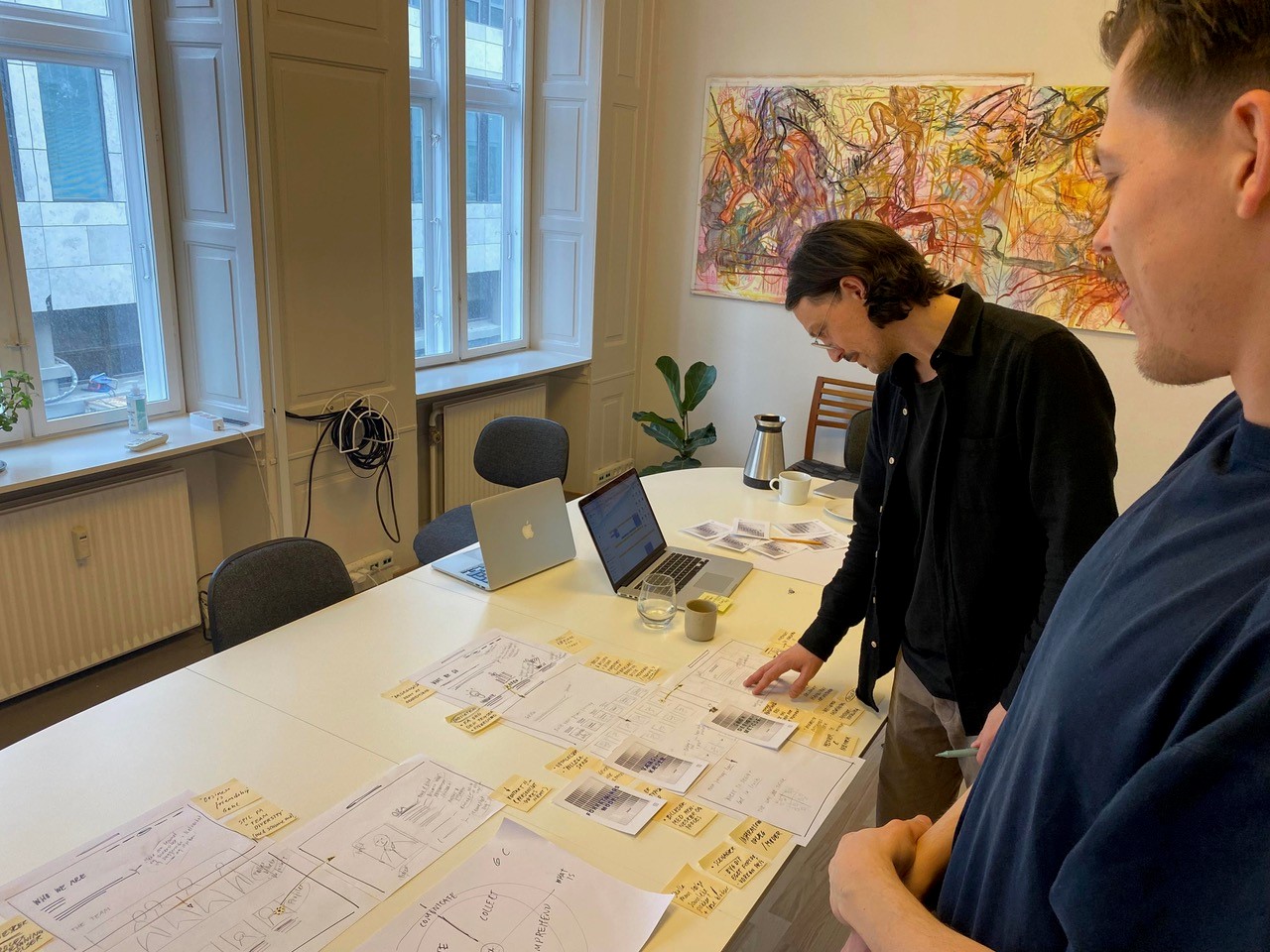
KnowledgeWorker was founded in 2012 by seven young, unemployed graduates from diverse academic backgrounds – including business, philosophy, engineering, law, design, and economics. In the aftermath of the 2008 financial crisis and faced with a difficult job market, they chose to create their own opportunities on their own terms.
They began by investing their time and expertise in companies struggling to secure funding for sustainability projects and green initiatives. Within a year, their model proved successful.
Today, KnowledgeWorker is an award-winning management consultancy that has completed more than 250 projects, helping businesses meet the rising demands for sustainable business models and green transitions, driven by both societal and customer expectations. In parallel, KnowledgeWorker also acts as a professional investor, supporting cooperative start-ups with both capital and mentorship – and actively engages in developing cooperative policy.
In the early days, the founders didn’t realize they were building a cooperative. They simply organized themselves in a way that empowered their consultancy model. Guided by the belief that a modern knowledge worker who has both ownership and decision-making power is more motivated to create better outcomes for clients, they created a structure that blurred the lines between work, life, and values. This naturally led to a cooperative ownership model, which they now see as a significant competitive advantage.
At the time, worker cooperatives in Denmark faced strong biases. There was little to no awareness of the model within the start-up and scale-up ecosystem. If you asked a banker, lawyer, investor, or business school professor, few would have known how to support such an initiative.
In their search for guidance, support, and community, they found Kooperationen, the Danish Cooperative Organisation. With their help, KnowledgeWorker overcame many practical challenges – from tax exemptions and articles of association to contracts and legal negotiations – and officially became a cooperative.
Currently, the cooperative has 11 members, all worker-owners. Each person in the team brings something unique, and they work closely together. Clients value not only their services but also the strong values the cooperative represents – particularly the democratic and ethical approach. All new employees are invited to become owners on equal terms.
They offer a professional community and the freedom to pursue meaningful work. Their motto captures this spirit: Better work for a better world.
Governance at KnowledgeWorker is structured yet flexible. Two General Assemblies are held annually – one focused on strategy and finance, and another for electing leadership. The leadership consists of both a CEO and a Development CEO, who share responsibilities. Weekly Monday meetings help organize tasks, and every worker has an equal voice. At the same time, management assumes responsibility for decisions between the General Assemblies. The cooperative follows the seven international cooperative principles and has developed a manifesto outlining how these are applied in daily operations.

When asked about the value of being a cooperative, Frederik Petersen shares:
“We see it both as a professional and competitive work environment, and as a safe space where we can dream of a better world and work toward it. There’s great love around this place because it’s ours. We help each other out – not just with work, but with life too.”
Like many businesses, KnowledgeWorker has faced significant challenges. The COVID-19 pandemic was especially tough. They lost nearly all their assignments, and several worker-members left. Unlike many of their competitors, they could not access government financial support due to their cooperative structure. They had to borrow money, which they are still repaying little by little. Still, they found strength in solidarity. Their landlord, impressed by their values, suspended rent payments during the pandemic, helping them reduce costs and survive. Several clients even offered financial support packages to ensure KnowledgeWorker would pull through.
Today, new challenges are emerging. Recent EU omnibus policy changes on sustainability have generated significant uncertainty in the business environment, making companies more hesitant to initiate green transitions. Determined to continue working in this space, KnowledgeWorker is exploring new ways to raise awareness and sustain interest in sustainable values and practices – which they see as the only viable path for companies to secure their relevance in the years to come.
As part of a strong local network of 64 cooperatives in Copenhagen, Kooperativt København, KnowledgeWorker also advocates for local public institutions to prioritize working with cooperatives in their community.
With 2025 designated as the International Year of Cooperatives, Frederik sees a unique opportunity to raise awareness, influence policy, and demonstrate what democratic business truly means.
KnowledgeWorker is a proud member of Kooperationen, our Danish member organization.









